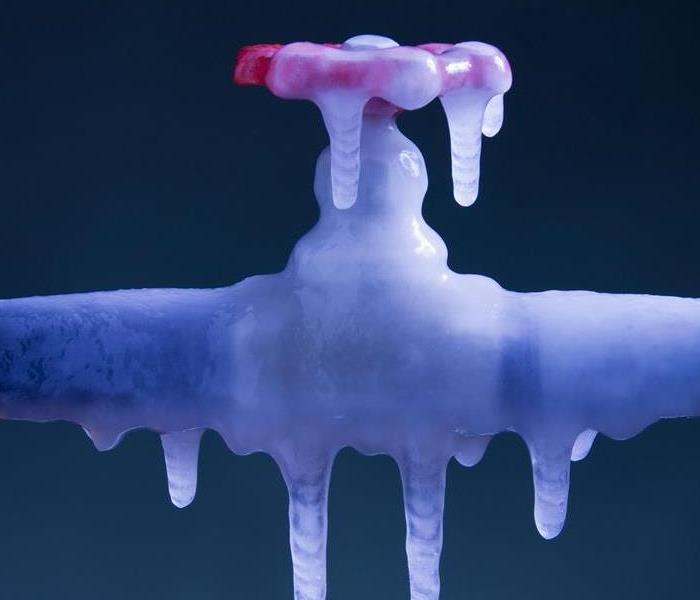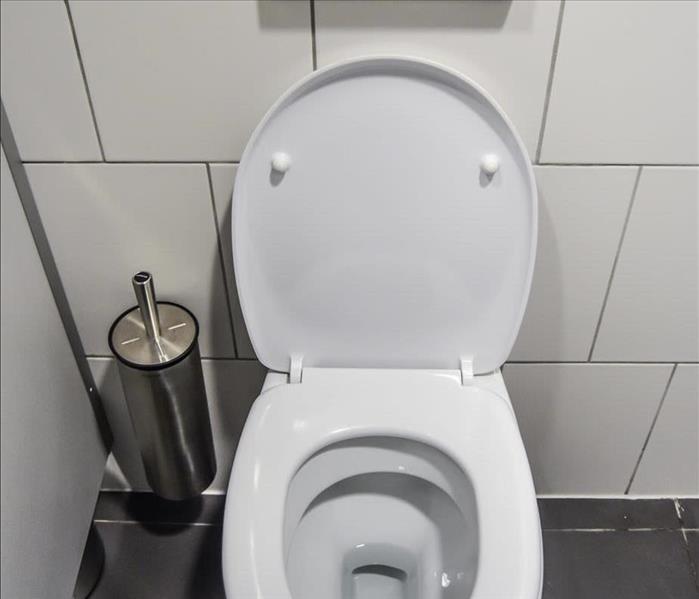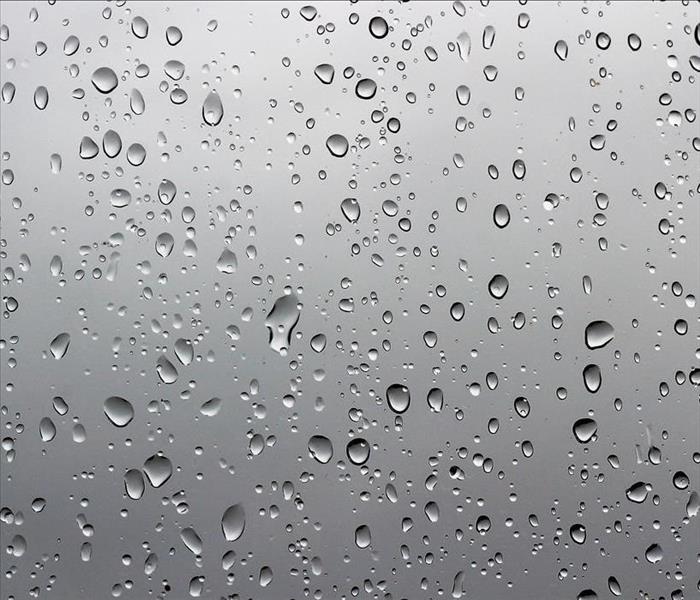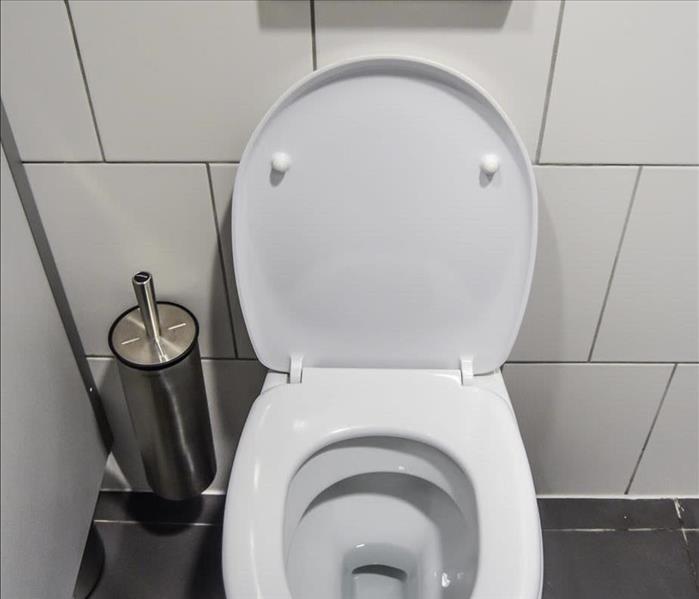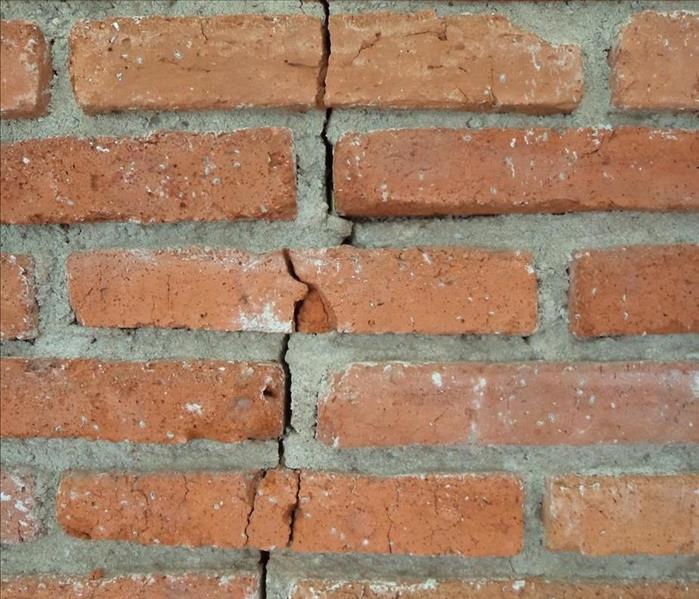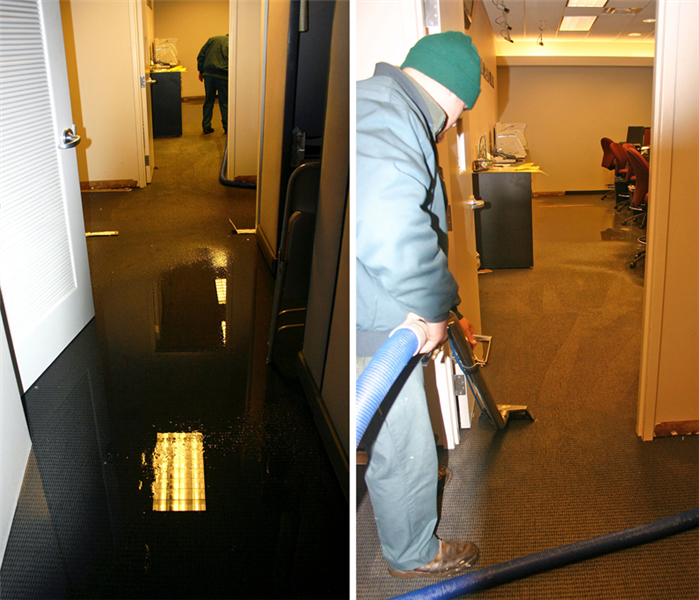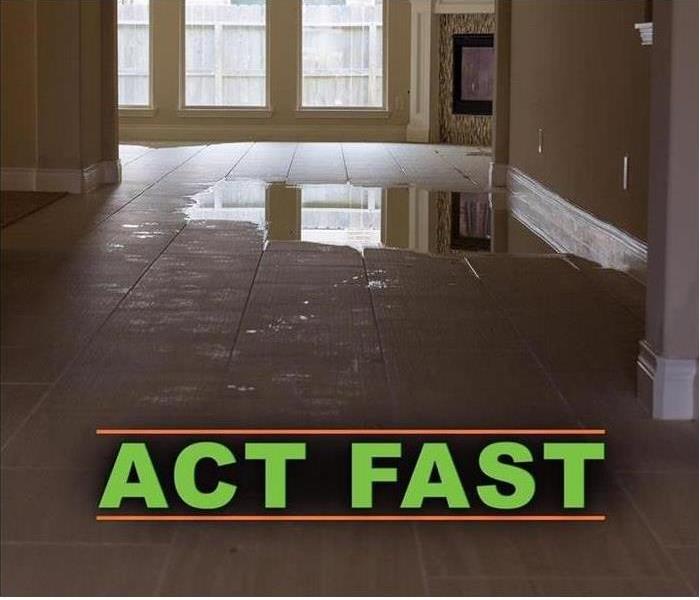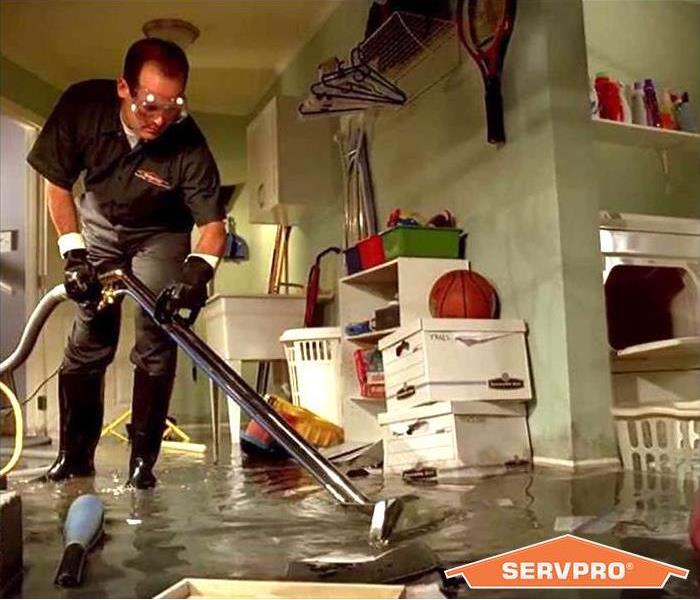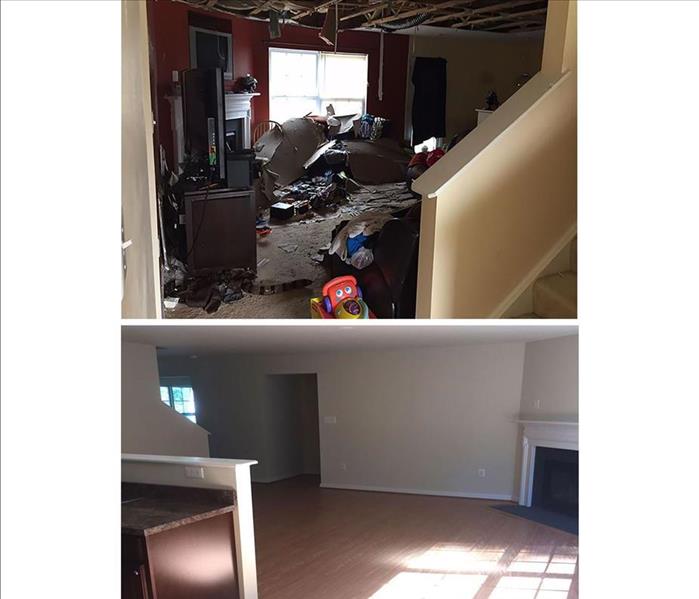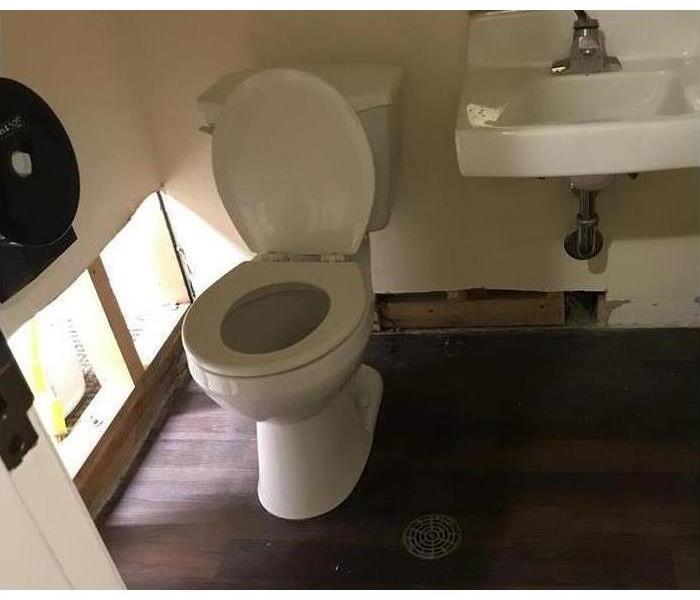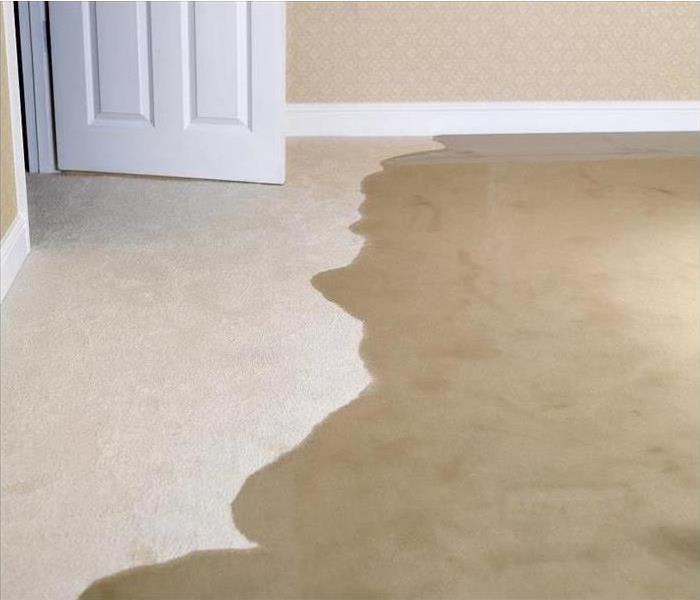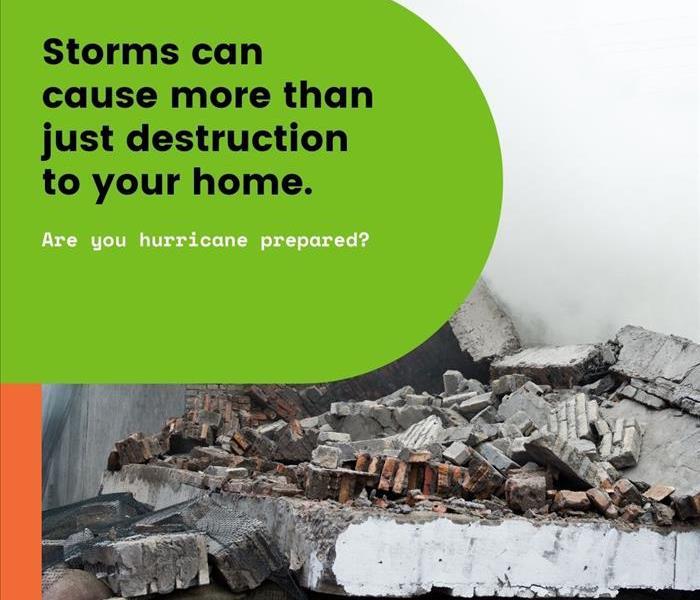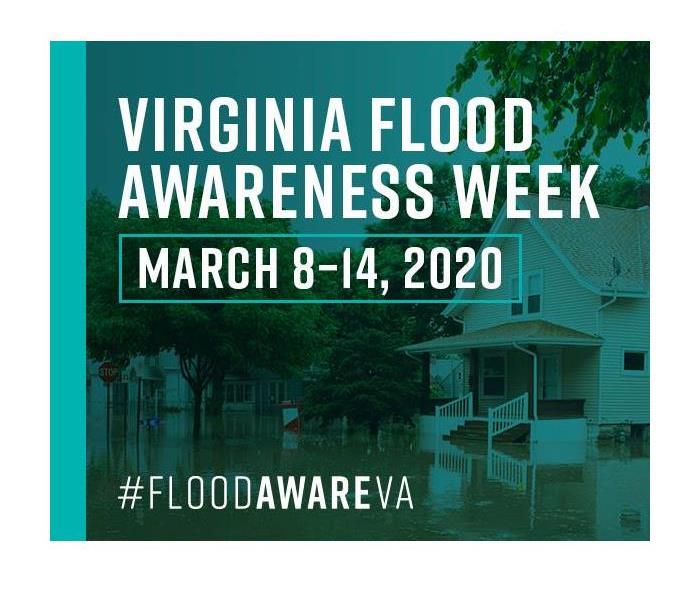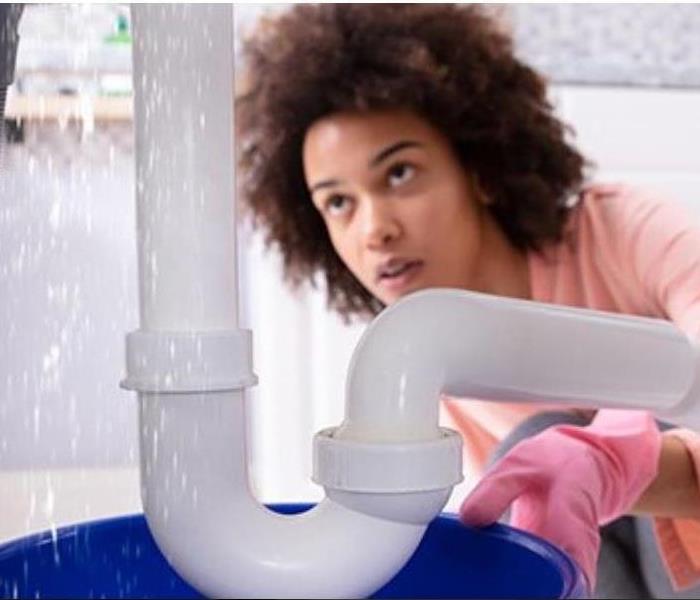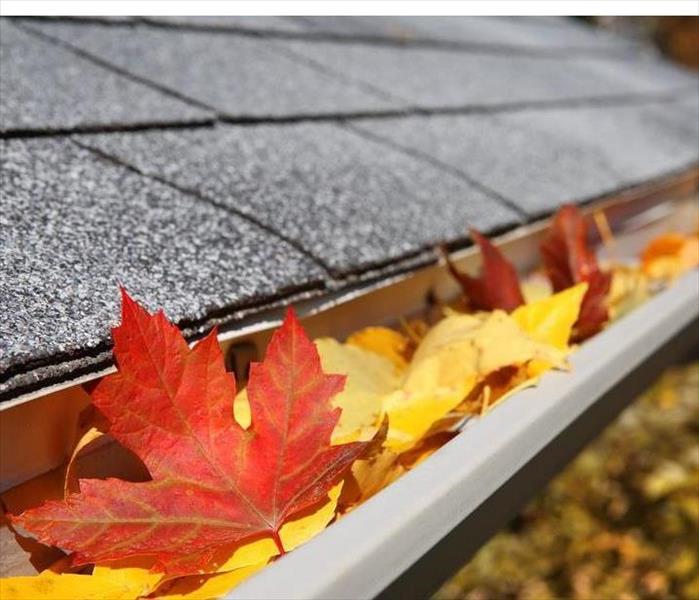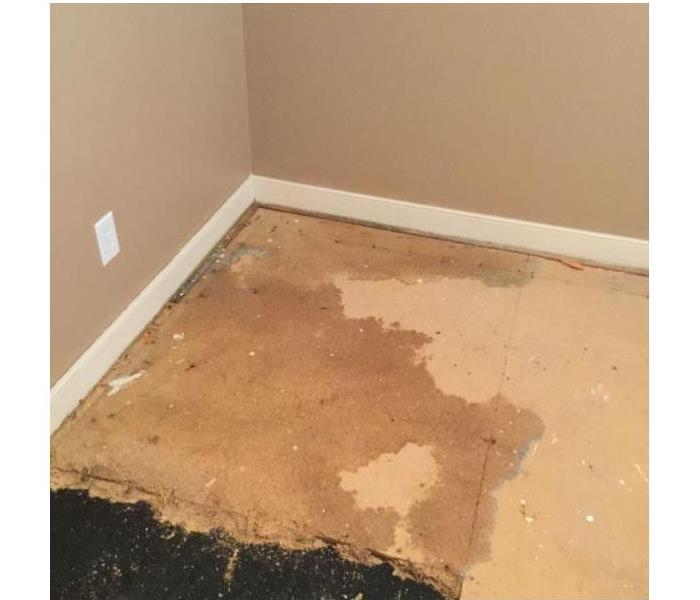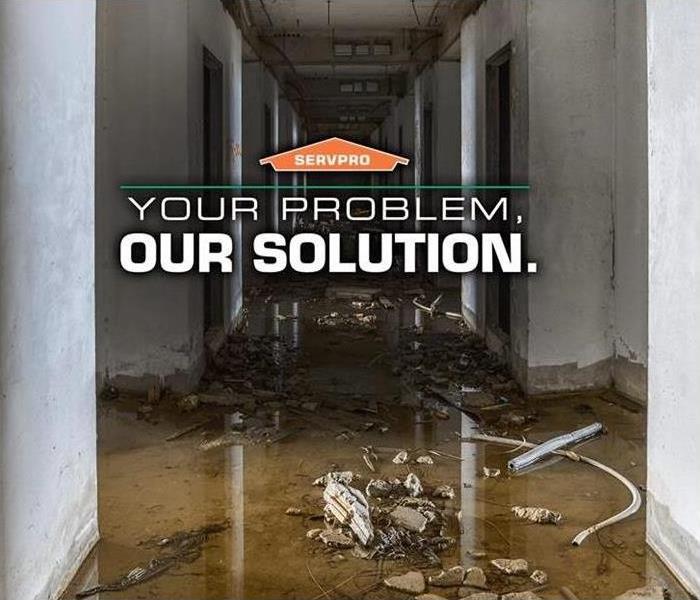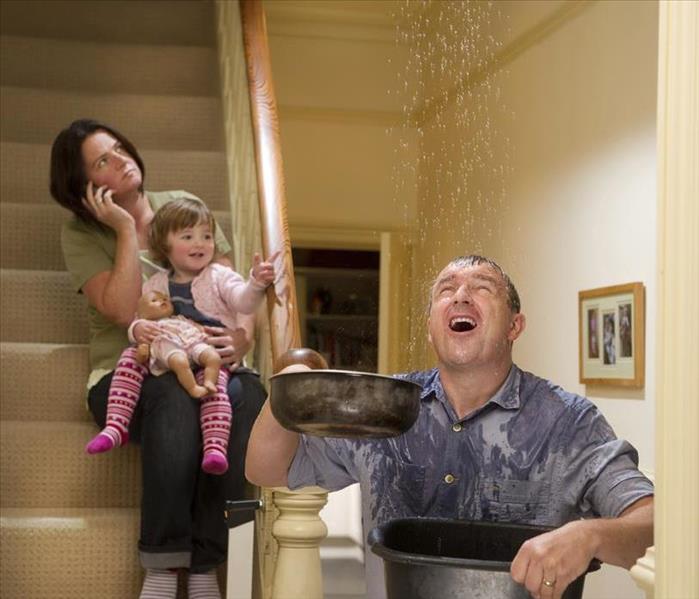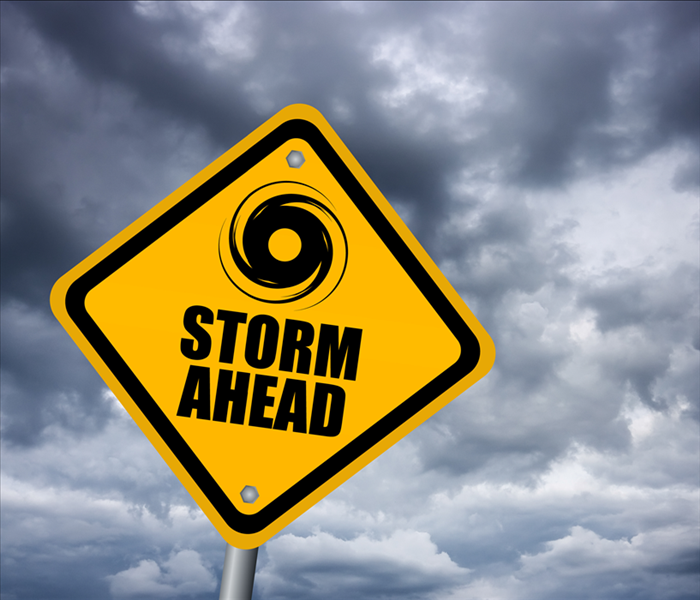Recent Water Damage Posts
Frozen Pipes and Expert Tips for Prevention
1/16/2025 (Permalink)
Frozen Pipes: SERVPRO of Chesterfield's Expert Tips for Prevention
Winter brings the risk of frozen pipes, a common issue that can lead to extensive water damage in homes and businesses. Frozen pipes occur when water inside plumbing lines freezes and expands, potentially causing pipes to burst. Taking proactive steps to prevent frozen pipes can save property owners significant time, stress, and money on costly repairs.
SERVPRO of Chesterfield, a restoration company specializing in water damage mitigation, recommends several effective methods to protect pipes from freezing. These include insulating exposed pipes, sealing air leaks, and maintaining a consistent indoor temperature. Pipes that run alongside exterior walls or in unheated spaces are particularly vulnerable and may require extra attention.
Understanding the risks and implementing preventive measures is crucial for safeguarding plumbing systems during cold weather. By following expert advice and taking action before temperatures plummet, property owners can significantly reduce the likelihood of dealing with the aftermath of burst pipes.
Understanding Frozen Pipes
Frozen pipes pose a significant risk to homes and businesses during cold weather. They can lead to costly damage and disruptive water outages if not addressed promptly.
Causes of Frozen Pipes
Pipes freeze when exposed to prolonged cold temperatures, typically below 20 degrees Fahrenheit. Uninsulated pipes in exterior walls, attics, and crawl spaces are especially vulnerable. Poor heating in vacant properties also increases the risk.
Sudden temperature drops can catch property owners off guard. Wind chill factors exacerbate the problem by accelerating heat loss from pipes.
Pipes with a small diameter freeze more quickly due to less water volume. Those in unheated areas or near drafts are at higher risk.
Consequences of Pipe Freezing
When pipes freeze, water expands and creates immense pressure. This can cause pipes to crack or burst, leading to significant water damage. Even a small 1/8-inch crack can leak up to 250 gallons of water per day.
Water damage from frozen pipes can ruin floors, walls, and personal belongings. It may also lead to mold growth if not addressed promptly.
Burst pipes often result in:
- Disrupted water supply
- Extensive property damage
- Costly repairs
- Potential displacement from home or business
Immediate action is crucial when pipes freeze to minimize damage and prevent further complications.
Preventive Measures for Homeowners
Protecting pipes from freezing requires proactive steps by homeowners. Proper insulation and strategic heat circulation can significantly reduce the risk of frozen pipes.
Insulation Techniques
Pipes in unheated areas are particularly vulnerable to freezing. Homeowners should focus on insulating pipes in basements, attics, and crawl spaces.
Foam pipe sleeves offer an effective and affordable insulation solution. These can be easily wrapped around pipes to provide protection against cold temperatures.
For added insulation, homeowners can use heat tape or heat cables. These electrical solutions provide direct warmth to pipes, preventing freezing even in extreme cold.
Sealing leaks and cracks near pipes is crucial. Cold air can enter through small openings, increasing the risk of frozen pipes. Caulk or spray foam can be used to seal these gaps effectively.
Proper Heat Circulation Strategies
Maintaining consistent warmth throughout the home is key to preventing frozen pipes. Homeowners should keep their thermostats set to a minimum of 55°F, even when away from home.
Opening cabinet doors under sinks allows warmer air to circulate around pipes. This simple step can make a significant difference in preventing freezing.
For extremely cold nights, letting faucets drip slightly can help. Moving water is less likely to freeze than standing water in pipes.
Using space heaters in problem areas can provide targeted warmth. However, it's essential to follow safety guidelines when using these devices.
Sealing drafts and improving insulation in the home's envelope can help maintain overall warmth, indirectly protecting pipes from freezing.
SERVPRO of Chesterfield's Role
SERVPRO of Chesterfield plays a crucial role in preventing and mitigating damage from frozen pipes. They offer expert services to protect homes and businesses from water damage caused by burst pipes during cold weather.
Emergency Response and Mitigation
When frozen pipes burst, SERVPRO of Chesterfield provides rapid emergency response to minimize damage. Their 24/7 availability ensures quick action when every minute counts.
Upon arrival, technicians assess the extent of water damage and develop a comprehensive mitigation plan. They use powerful pumps and vacuums to remove standing water quickly.
SERVPRO employs industrial-grade dehumidifiers and air movers to thoroughly dry affected areas. This prevents secondary damage like mold growth.
The company's restoration services include repairing or replacing damaged drywall, flooring, and other materials. They aim to return properties to their pre-damage condition efficiently.
SERVPRO of Chesterfield's emergency teams are equipped to handle projects of all sizes, from small residential leaks to large commercial water damage incidents.
Seasonal Maintenance Tips
Regular plumbing maintenance throughout the year helps prevent frozen pipes and other issues. Taking proactive steps each season protects your home's plumbing system and avoids costly damage.
Winter Preparedness Checklist
Insulate exposed pipes in unheated areas like basements, attics, and crawl spaces. Use foam pipe insulation or heat tape to prevent freezing. Seal cracks and holes in exterior walls near pipes with caulk or insulation.
Disconnect and drain outdoor hoses before freezing temperatures arrive. Close interior valves supplying outdoor faucets, then open the outside faucets to drain the remaining water.
Set the thermostat no lower than 55°F (13°C), even when away. Open cabinet doors under sinks to allow warm air circulation around pipes.
Locate the main water shut-off valve and ensure everyone in the household knows where it is. This allows quick action if a pipe bursts.
Summer and Fall Plumbing Tips
Check for leaks in faucets, pipes, and hose connections. Repair any issues promptly to prevent water waste and potential damage.
Clean gutters and downspouts to ensure proper drainage away from the home's foundation. This reduces the risk of water damage to basement walls and pipes.
Inspect the water heater for signs of corrosion or leaks. Flush the tank annually to remove sediment buildup and improve efficiency.
Test the sump pump to ensure it's working correctly before heavy rains arrive. Consider installing a battery backup system for added protection during power outages.
Do-it-Yourself Solutions and When to Call Experts
Dealing with frozen pipes requires a balance of DIY techniques and knowing when professional help is necessary. Prompt action can prevent extensive damage and costly repairs.
DIY Thawing Techniques
To thaw frozen pipes, start by opening the faucet to allow water to flow as the ice melts. Use a hairdryer, heat lamp, or portable space heater to warm the pipe, starting from the faucet end and working toward the coldest section. Never use open flames or electrical appliances near standing water.
For accessible pipes, wrapping them in hot towels can be effective. Alternatively, use electrical heating tape designed for pipe thawing. Keep the heat source moving to avoid overheating one area.
If the frozen section is behind a wall, try turning up the home's thermostat or using an infrared lamp to heat the wall surface. Monitor the process closely to prevent fire hazards.
Identifying Situations for Professional Help
Call a licensed plumber if pipes are inaccessible, if there's no water flow after thawing attempts, or if you suspect a pipe has burst. Signs of a burst pipe include water stains on walls or ceilings, unusual sounds in the plumbing system, or unexplained increases in water bills.
Professionals should handle situations involving main water lines or complex plumbing systems. They have specialized equipment to locate and thaw pipes in hard-to-reach areas.
If water damage has occurred, contact a restoration service like SERVPRO of Chesterfield. They can assess the extent of damage and provide necessary cleanup and repairs to prevent mold growth and structural issues.
Hardwood Floors Water Damage
7/8/2024 (Permalink)
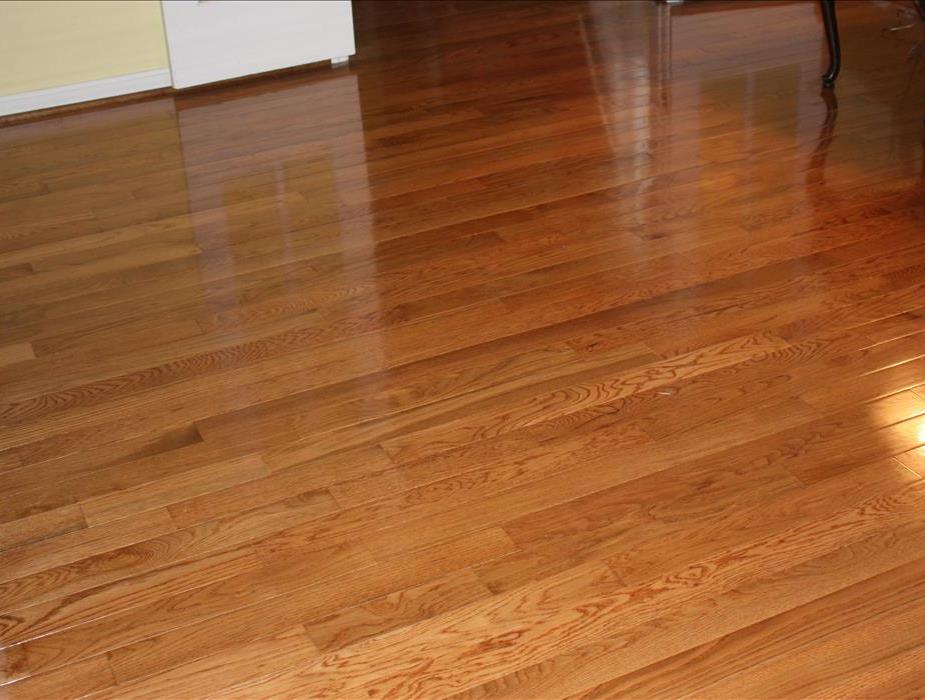 Hardwood Flooring
Hardwood Flooring
When your home experiences water damage, besides the structural concerns, one of the biggest can definitely be your hardwood floors. Hardwood floors are expensive and add both cosmetic and monetary value to your home so, if possible, you obviously want to try and avoid ripping them out and replacing them.
There are multiple factors that can play a part in our ability to restore your floors to preloss conditions:
- Moisture Levels – Hardwood floors have a very low moisture content. When water pools on them for long periods of time the moisture gets soaked into the wood and can take weeks to dry out on its own. This can cause the wood to buckle, have raised edges or have the panels separate from each other.
- Time – The type of wood in question plays a role in how quickly water is absorbed and then dried out. Wood rot happens when microbial growth in water is left without treatment in wood and begins to breakdown the wood. The faster that the water damage to your hardwood floors is addressed the more likely we are able to restore your floors and not have to replace them.
- Drying Methods – Both the kinds of woods used as well as the installation methods play a part in the decision of which drying method should be used to dry out your floors. Specialized equipment like drying mats can be used to dry large portions of your flooring at a time helping to speed up the process and ensure moisture readings are at the correct levels. Using the installation methods, wood density, and other factors, our trained technicians will determine just how long the mats should be left in place.
As you can see, there are quite a few factors that decide whether or not you will have to replace your expensive hardwood floors or not, and that it’s best left to the professionals to handle to help increase your odds of restoration. So, if you find yourself in need of water damage restoration, don’t delay and give us a call asap. Our team is waiting to see how we can help you today.
It probably was the bathrooms fault!
9/14/2023 (Permalink)
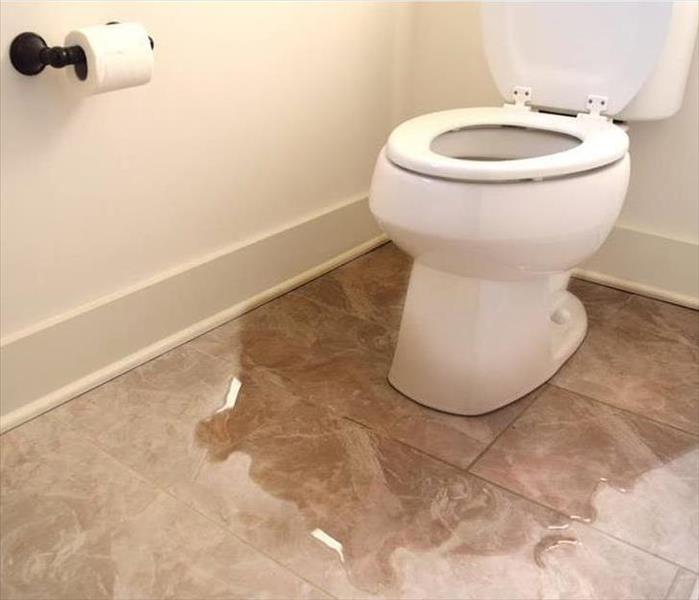 This is usually where it starts!
This is usually where it starts!
Bathrooms are arguably the place where the most water is used in your household. As such, the likelihood of water damage occurring or at least starting from this room is pretty high. We wanted to give you some tips on how to help prevent water damage from happening in your bathroom!
Repair cracked, broken, or missing tiles – If there are cracks or missing tiles in your bathroom, these are spots where water has much easier access to the rest of your house and can get behind walls and under floors faster than if that tile barrier was still functioning.
Exhaust Fan – Make sure that whenever you use the shower you turn on your exhaust fan. This fan helps to pull out any extra moisture in the air from the steam in your shower and stops it from building up on your walls and ceilings. This is crucial to helping prevent mold growth in your home.
Bathmats – While used for safety as well, having bathmats on your floor can help prevent water from building up around your tub or shower. Just make sure if they get overly wet that you move them and dry them out, and don’t leave them soggy on the floor or it defeats the purpose entirely.
Shower Curtain Liners – Shower curtains usually come with a decorative piece as well as a liner that is meant to go inside the tub. Make sure that before you shower this liner is inside the tub and not hanging out of it, otherwise water can run off the curtain and straight onto your floors!
Regular inspections – You should inspect your valves in all of your water fixtures regularly for proper function as well as making sure there are no leaks. Additionally, a general inspection of the floors and walls to ensure there are no water spots or stains.
There’s always the possibility of unavoidable water damage, but with these tips hopefully, you can help to mitigate the damage and lower the chances of anything severe happening. While no one likes water damage, we’d love to help you deal with yours. We’re here to help 24/7, 365 days a year.
Water in Your Crawl Space
9/6/2023 (Permalink)
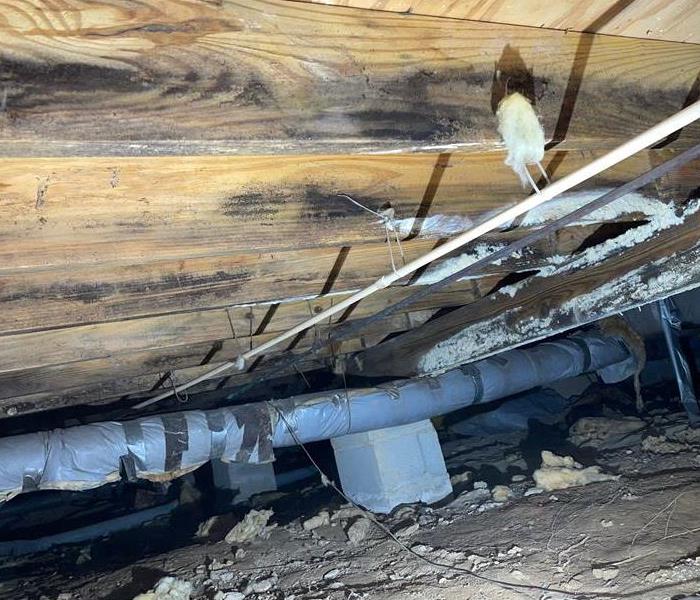 Does Your Crawl Space Look Like This?
Does Your Crawl Space Look Like This?
Crawl spaces are a common feature in many homes. Unfortunately, it’s also a common place to find water where it’s not supposed to be. If you find water in your crawlspace it’s important to deal with the issue quickly. If left alone it can lead to mold, musty odors, and rotting.
Water in your crawlspace can come from a number of different sources including plumbing leaks, heavy rainfall, faulty sump pumps, foundation damage, and others. In order to properly address the water in your crawlspace you first have to identify where it’s coming from. If the source isn’t addressed before remediation, then the problem could just reoccur. To help prevent future standing water you can install drainage or a sump pump in the crawl space to help keep it dry after you’ve fixed the issues in case of future problems.
Once you’ve figured out and taken care of what is causing the water to get into your crawlspace you can begin to fix the damage that has been caused. First, the standing water needs to be removed, and a dehumidifier is put in place to help reduce the moisture levels and prevent mold growth. Once the standing water is removed and everything is dried out, all of the affected areas should be inspected for water damage and mold growth to make sure they don’t need to be repaired, cleaned, or replaced. Depending on how long the water was in the affected area it could have started to rot wooden structures beneath your home that might need to be taken care of.
While these fixes can potentially be done yourself, water damage, especially in areas of your home where structural components are involved, it’s best to contact a professional to make sure that everything is done correctly, and that everything is dried out properly. Otherwise, more damage may occur, or the problems may come back again. SERVPRO is a leader in the restoration industry and our team is always training to help ensure that the water damage in your home is taken care of properly according to industry standards. Give us a call and let us make your crawlspace water damage “Like it never even happened.”
Common Toilet Leaks
8/15/2022 (Permalink)
Finding out there’s a water leak in your home is never fun, but one of the last places you want to be leaking is your toilet. As with everything else in your home, toilets can degrade over time with regular use. It’s important to know the most common causes of why your toilet could be leaking and how to fix them.
- Bad Supply Line or Valve – If the issue is with your supply line you may see dripping when you flush. The problem is that small leaks are often very difficult to find and identify. The easiest way to find them is with a colored water test. Using color-test safe tablets or food coloring to avoid staining the toilet, dye the water in the tank and wait. After about 10-15 minutes check and see if you can find any colored water outside the toilet. If not, give it a flush and then check again. If you still don’t see any colored water, then your problem may be elsewhere.
- Broken Tank Flange – The tank flange is what mounts the toilet to the floor and connects it to the drain line. If this is broken, there are a few things you may notice. First is obviously, moisture buildup or puddles around the base of the toilet. Additionally, you may notice unpleasant odors, or your toilet might be wobbly. Both of these are signs that the flange my need to be replaced.
- Wax Seal – When you flush the toilet, the water will exit into the sewage line. If the wax seal below the toilet is damaged, the water may instead go around the base of the toilet. To repair this, you should first try and tighten the bolts on the toilet, if you’re still having issues, you may need to replace the wax gasket.
- Poor Installations – There is also the possibility that the toilet was originally installed incorrectly. If this is the case, there’s a chance that the water damage could have been happening for quite some time before you noticed. If this is the case, you should replace the toilet and contact a water damage company as soon as possible.
Remember that water will continue to damage your home until the source of the leak has been addressed and everything has been dried out. Putting off addressing the water damage in your home can lead to even more costly repairs. If you’ve discovered water damage in your home due to a leaking toilet or any other cause our team here at SERVPRO of Chesterfield and SERVPRO of Tri-Cities, Plus is available 24/7, 365 days a year to help make it “Like it never even happened.”
Check for Moisture in Your Home
6/27/2022 (Permalink)
Moisture in your property is never a good thing, however if you have an older property, it is much more susceptible to damage from unwanted issues. As your property ages it’s ability to keep moisture out lessens, so when you experience things like heavy rainfall or high levels of humidity water can leak in where it shouldn’t be such as your windows, doors, crawlspace, and attic. Small amounts of moisture may not do any noticeable damage, but if left untreated it can begin causing serious issues to your home or business. Proper and regular maintenance of your home can help to prevent this. For example, you should check the seals around your doors and windows every Spring after it starts to warm up to ensure that the cold weather did not do any damage to them.
If you do however find that there is moisture in your home or business, SERVPRO of Chesterfield and SERVPRO of Tri-Cities is available to help! Our team of highly trained technicians will be able to use specialized equipment to help ensure that we locate the source of the moisture and that everything is properly dried out. Using things like hygrometers and moisture sensors allows us to ensure that the drying process is going as efficiently as possible and that there aren’t any hidden pockets of moisture that were missed.
Water damage can happen quickly and it’s important to take care of it as fast as possible to avoid any secondary damages. That’s why our team is available 24/7, 365 days a year for all of your emergency water damage needs. Please give us a call and let us know what we can do for you!
Pests and Water Damage
6/7/2022 (Permalink)
It should come as no surprise that water is one of the biggest causes of costly damage to homes. From heavy rainfall due to storms, to sewage backups, and appliance leaks there’s no shortage of potential water damage dangers. One potential way your house might get water damaged that is not often thought about is from pests.
Animals like rodents and racoons often seek shelter in openings in people’s homes and get into areas they should not be in like your attic or in the walls. On top of the obvious damage they can cause from chewing on your home's structure and leaving waste behind, these pesky animals also love to chew on plastic pipes. These animals include:
- Squirrels
- Racoons and opossums
- Mice and rats
- And any other animals that can fit into the small openings in your home
When these animals decide to eat away at your pipes it can cause some serious leaks in your home, and if not caught early enough, thousands of dollars in damage.
The best way to prevent this is with regular inspection and maintenance of your home. Check to make sure that there are no exposed openings to your home from the outside like holes around vents, your crawlspace, or in your roof. Typically, these are the areas where you will likely see animals trying to get in. You should also regularly inspect all of your visible pipes in your home for leaks. While they may start out small and unnoticeable, even just a small amount of water can slowly turn into a big problem.
If you notice water damage during your regular home inspections give us a call here at SERVPRO of Chesterfield and SERVPRO of Tri-Cities, Plus. Our team is constantly working to help ensure that they are using the best techniques and equipment available to make your water loss, “Like it never even happened.”
What Causes a Sewer Backup?
6/1/2022 (Permalink)
Of all the different water damages that could occur to your property, one of the worst is a sewer backup. Sewage is considered black water, or highly contaminated, and requires professionals to clean up properly and help ensure there is no bacteria or other harmful contaminants left behind. Continue reading to find out how these events occur and what you can do to help prevent them.
Sewage backups are typically caused when wastewater cannot properly flow away from your home due to some kind of damage or obstruction in the pipes. Some of the potential culprits are:
Causes
Tree Roots – The roots from trees are able to reach out far past where the actual tree is growing. These roots are strong, and overtime can push into the pipes and break them or grow into them. This can cause some serious damage to your pipes, from leaks due to the holes, or if the roots are inside of the pipe, they can clog it and cause a backup. You’ll need to cut out the roots and replace the damaged sections of pipe.
Cracked Pipes – Home sewer lines, while durable, do not last forever. Over time the structural integrity of the pipes will lessen, and they can potentially crack or completely collapse. Newer materials used for pipes can last longer, but some of the older materials have a lifespan of between 30 and 60 years.
Clogged Lines - It’s important to remember that our wastewater lines are not meant to just handle anything we put down the drains. Fats and waste from foods, hair and flushable wipes are some of the worst culprits of clogs but you should never try and put anything down the drain, no matter the size, that’s not meant to be there.
Signs
There are a few signs that you may be having issues with your sewer lines. While some are obvious signs of a serious issue, others may not be. If you have more than one of the following you may want to get your sewer lines inspected to make sure they aren’t damaged.
- Yard constantly swampy or smells bad
- You can hear different drains, like the sink, gurgling when you use the shower or flush the toilet
- Multiple drains are draining very slowly or starting to back up
- Drains constantly smell bad, particularly when you use a different drain in another area of the home
Prevention
Unfortunately, some of causes of sewer backups are not something you can prevent, but there are a few things that you can do to help reduce the likelihood of these events from happening.
- Do not use flushable wipes, contrary to their name these are some of the main culprits of sewage backups and cause many problems
- Use hair catchers in the showers and bathtubs. Hair is slow to breakdown and if it gets caught in your pipes, over time it can create a blockage
- Never pour fats down the drain. While they are liquid when hot, as fats cool the can congeal again and clog up your drains
- Have your pipes inspected for damage and cleaned regularly to help prevent clogs and address any pipe damage as quickly as possible
Sewer backups can cause a large amount of damage to your home and contaminate everything that the dirty water touches. It is important to have a professional company come in to take care of the damage and make sure that everything is cleaned to the proper standards. SERVPRO of Chesterfield and SERVPRO of Tri-Cities, Plus is IICRC certified and can take care of any kinds of damage that you may encounter due to a sewage backup. Give us a call or fill out a form on our website and let us know what we can do for you.
How and Why Is My Toilet Leaking?
4/19/2022 (Permalink)
Sewer backups and toilet leaks are some of the more frustrating water damages to happen to your home or business since a good majority of the time the water from these kinds of leaks is considered blackwater and highly contaminated. This makes cleanup more difficult compared to other kinds of water damage. Today, we wanted to share with you some common causes of toilet leaks in hopes that you’ll be able to help prevent them from happening to you.
Pipes – Impurities in the water, and time in general can corrode metal pipes and cause them to rust out and break. While these leaks are harder to prevent since it is not really possible to check the insides of every water pipe, regular inspections of your home or business can help to identify small leaks or damage before they turn into bigger issues.
Tank/Bowl – These are pretty durable, but over time can weaken and what was once a hairline crack in the bowl can expand with stress and time. If you see any cracks or chipping in your toilet bowl or tank it’s likely a good idea to consider replacing the toilet before it gets worse.
Fill Valve – This is what controls the flow of water that refills the tank after you flush if not functioning properly the valve will not shut off the flow of water and the toilet will constantly run. This is problematic for many reasons including a high water bill, as well is if the toilet clogs the water can overflow and won’t stop running.
Flush Valve – This is what allows water to flow into the bowl after you flush. Over time the seals on these valves can degrade. This can lead to continuously running toilets or leaks if left alone.
Toilet leaks and sewer backups are water damages that should be left to a professional to handle. Water damage of this kind can be harmful if not properly handled. If your home or business experiences water damage from a toilet or of any other kind, do not delay and give SERVPRO of Chesterfield and SERVPRO of Tri-Cities, Plus a call. Time is of the essence when water damage is involved and the longer you wait, the worse it can get.
What to Know About Foundation Damage
12/8/2021 (Permalink)
The foundation your house sits on is the most important part of your home’s structure. When people talk about what they’re doing to help prevent any water damage from affecting their homes, most would say they weren’t doing much of anything to protect their foundations. While ideally the way your house was built should help to mitigate any water damage from happening to your property’s foundation, this kind of damage can lead to cracks in the foundation and cause it to shift. This can weaken its structure and end up compromising the structural stability of your entire home. If you find yourself being one of those people we mentioned above, here are some tips to help prevent any water damage to your foundation:
Place a sump pump in your basement/make sure it functions properly – Sump pumps are designed to remove groundwater that has seeped into your foundation from around the property quickly so that it does not cause any damage. It is important to regularly inspect your pump and ensure it is working correctly so that when you need it no problems arise.
Clean your gutters and use downspouts – Cleaning your gutters is an important part of making sure your home is properly protected from water damage in many ways, but speaking for your foundation, a clean gutter will allow water to properly flow into your downspouts and AWAY from your property. Using downspouts to direct the water away from your foundation helps prevent it from pooling around your home and getting into the foundation to cause damage
Don’t let soil around your foundation completely dry out – This might sound slightly counterintuitive, however in times where there is little rain, and your soil is completely dried out it can shrink and cause gaps between it and the foundation. Then, when rain finally does come the soil can rapidly expand and put unexpected pressure on parts of your home’s foundation or pool in those gaps and get into the foundations structure and cause damage.
We hope you take advantage of these tips and that they help to prevent any water damage to the foundation of your home, but if you should find yourself with a basement full of water, or any other manor of water damage to your home we’re ready and waiting 24/7, 365 days a year to take your call.
Water Damage: What To Do Until Help Arrives
8/16/2021 (Permalink)
Yesterday’s thunderstorm lasted from the late afternoon and through the night, bringing heavy rain to our area. Flooded roads, flooded basements, sewage backups, sump pump failures and more have wreaked havoc on our community. Our SERVPRO of Chesterfield and SERVPRO of Tri-Cities, Plus team is working around the clock and hustling to get to all of our customers who are in need. As we always try to get to everyone ASAP, sometimes those customers who have to wait for the crew are panicked and don’t know what to do until help arrives. Here is a quick list of tips to follow when you’re waiting for our SERVPRO mitigation team to arrive and take care of the water in your home.
First of all, SAFETY. Consider these questions and thoughts:
- Is it safe to stay in the house?
- Electrical and "slip and fall" hazards are some of the most prevalent concerns.
- Only do activities that are safe for you to perform.
- Wet materials can be VERY heavy. Be careful!
What to Do Until Help Arrives:
- Remove excess water by mopping and blotting.
- Wipe excess water from wood furniture after removal of lamps and tabletop items.
- Remove and prop wet upholstery and cushions for even drying.
- Place aluminum foil or wood blocks between furniture legs and wet carpeting.
- Turn air conditioning on for maximum drying in summer.
- Remove colored rugs from wet carpeting.
- Remove art objects to a safe, dry place.
- Gather loose items from floors.
How to Deal with Water Damage
6/28/2021 (Permalink)
Water damage is inevitable, whether it is from a storm, a leaking pipe, or even an overflowing toilet. When water infiltrates your home, many areas can suffer. It is important to begin the restoration process as soon as possible so that you can prevent further damage from occurring. Here are some steps you can implement after a water damage to ensure your home does not sustain permanent damage:
Step 1: Safety First – The most important thing to do after water damage has occurred is to ensure the safety of you and your family. Be sure to assess the threat and be cautious of any visible structural damage that could be potentially dangerous like loosened or cracked foundation, holes, or warping. Be sure to consider the source of the water, is the water contaminated or did it come from a clean source?
Step 2: Attempt to Stop and Remove the Water – The first thing technicians will ask you to do when you call, if you have not done so already, is to stop the flow by turning off the water at the main line. Standing water causes more damage in your home every minute it remains where it is not supposed to be. Standing water can sink into the floor and seep into the walls. Professionals can use industrial equipment to remove water quickly and safely.
Step 3: Turn off Power in the Flooded Area - Electricity and water are not a safe combination. Shut off breakers to the area where the water damage occurred, so that if you or technicians need to enter the water, you are not putting yourselves in danger.
Step 4: Remove Wet or Damaged Belongings – It is essential to remove your personal belongings from wet areas in order to limit the chances of permanent water damage and prevent staining. If personal items cannot be salvaged, technicians will dispose of them properly. Clearing out your personal belongings will make any needed restoration of your home faster and easier.
Step 5: Dry the Area - The last step of the water cleanup process is drying the area. One of the biggest effects of water damage is the growth of mold. Mold grows quickly, within 24 to 48 hours. A professional mold remediation service will help you to assess mold growth and remove it properly and quickly.
While there are steps you can take in order to ease the amount of water damage after a flood or pipe failure, it is important to call a professional restoration company to truly return your home to its best condition. SERVPRO of Chesterfield and SERVPRO of Tri-Cities, Plus will ease this process as we have a dedicated team, professional equipment, and over 30 years of experience remediating water damage. If you experience a water damage, don't hesitate to call SERVPRO of Chesterfield and SERVPRO of Tri-Cities, Plus at 804-378-2323.
Reasons Why Your Basement is Flooding
6/15/2021 (Permalink)
Check out these 5 reasons why your basement may be flooding.
- Location – Your home benefits from being in an area where no excess water from storms, melting snow, or other natural weather patterns will cause water damage. Your home should be designed to allow surface drainage to be directed away from your home, not towards it. If you notice any depressions around your home where water may pool, fill them in with clay-type soil or consider reshaping your yard so water flows away from your home.
- Sealing Walls and Floors – During the construction or remodeling of your home, the walls and floors of the basement need to be waterproofed with a sealant to avoid leakage and flooding. Always seal cracks or openings when found, to prevent water damage.
- Clogged Gutter System – Gutter systems are essential to divert water away from your home and to keep your basement dry. Debris stops water from moving off the roof through the gutter system, make sure to clean the gutters as part of your regular routine maintenance to avoid further problems like water collecting on your roof.
- Sewer Backup – During heavy storms, sewer systems become overwhelmed with wastewater and stormwater which can cause water to back up into your home through toilets, sinks, or floor drains. We recommend installing backwater valves to stop backflows on the sanitary sewer line.
- Sump Pump Failure – Sump Pumps are designed to keep your basement safeguarded from water, you should inspect, clean, and test your sump regularly to check for failing equipment. It is very important to keep your Sump Pump running during wet seasons, as they collect water from the ground around your home and pump it out when the basin fills with water.
Call the SERVPRO Professionals for Water Damage
5/21/2021 (Permalink)
When water damage impacts your home or business, you want the best in the restoration business to help you make it "Like it never even happened."
Call SERVPRO® of Chesterfield and SERVPRO® of Tri-Cities, Plus at 804-378-2323 any time of day, any day of the week, any time of the year, and get our team of professionals that have over 35 years of experience taking care of our community.
Whether your home is affected in a small way, or you own a business that’s affected with 100,000 square feet of water damage, we'll be able to handle it with the necessary tools, manpower and knowledge.
Independently owned and operated by Andrew and Theresa Bahen. SERVPRO® of Chesterfield and SERVPRO® of Tri-Cities Plus has earned an excellent reputation with homeowners, insurance companies, business owners, facility managers, local and state government agencies and commercial property management teams. Our experience, people, capacity and equipment uniquely qualifies us to handle large jobs no matter how extensive the damage. In the unfortunate event of a fire or water damage, call SERVPRO® of Chesterfield and SERVPRO® of Tri-Cities Plus. We will respond 24/7 with trained employees, state-of-the-art equipment and the resources required to perform emergency services to help limit property damage.
Homeowners Insurance and Water Damage Coverage
4/20/2021 (Permalink)
Insurance coverage can be confusing at times. That's why our team at SERVPRO of Chesterfield and Tri-Cities, Plus wants you to get the facts before you have water damage issues and no insight on what's covered by insurance.
Does Homeowners Insurance Cover Water Damage?
Yes - most homeowners insurance policies help to cover the damage only if it's a sudden or accidental cause.
There are basically two types of coverage depending on what has been damaged:
Dwelling Coverage - helps to pay for structural damage, such as a pipe burst and water damages the walls.
Personal Property Coverage - helps to pay for damage to your belongings, such as a pipe bursts and affects your furniture or electronics.
What's Not Covered by Insurance?
- Replacing/Repairing Source of Water Damage
- Water Backup from outside drain or sewer
- Unresolved maintenance issues
- Floods - you need a separate flood insurance policy
If you experience water damage in your home or business, our SERVPRO professionals will work with your insurance to efficiently and effectively restore your home.
Protect Your Home's Pipes
12/15/2020 (Permalink)
Our SERVPRO of Chesterfield and SERVPRO of Tri-Cities Plus team understands the importance of taking care of your home and also the burden of keeping up with it's maintenance. That's why we want you to be prepared for the upcoming winter weather and the affect it will have on your home's pipes.
Here are some quick and simple checklist items to cover for the inside and outsider of your home:
Outside:
- wrap outside faucets
- caulk around pipes where they enter the house
- disconnect the garden hoses, drain the inside, and store in shed or garage
- drain in-ground sprinkler systems
Inside:
- set faucets with a small drip if the temperature goes below freezing
- open cupboard doors in kitchen and bathroom for warm air to hit the pipes
- shut off and drain your water system if you are leaving for more than 5 days and expect freezing temperatures
If your home experiences a water damage from pipes bursting, call the professionals at 804-378-2323.
Water Damage - What To Do Before Help Arrives
7/8/2020 (Permalink)
When you experience a water damage in your home, it can be scary and cause you to panic. Of course you would immediately call a trusted plumber and the water damage experts at SERVPRO of Chesterfield and SERVPRO of Tri-Cities Plus, but what can you do until help arrives?
- First try and locate the source of the water damage and turn off the main water valve to stop the water from continuing to pour into your home.
- Never walk through deep water, but if safe and possible, turn the electricity off in the home.
- start trying to soak up as much water as possible using towels and mops. NEVER use a vacuum.
- if you have wood furniture that is affected with water, try placing foil under the legs or wood blocks to prop them out of the water, reducing the damage to your furniture.
- Cushions and other upholstery items should be propped up against a wall so there is even drying.
These are just some of the examples of things you can do while help arrives. Luckily, you won't have to wait long because our SERVPRO team will responded immediately to emergency water services to quickly begin the drying process in your home.
Reasons Why Your Toilet is Leaking
6/15/2020 (Permalink)
Reasons Why Your Toilet is Leaking
A leaking toilet can be a major issue, especially when the underlying cause is unknown. If your home has a bathroom leak that goes untreated, the resulting damage can be costly if not treated quickly and properly. The following are possible reasons why your toilet leaks with every flush.
Malfunctioning Wax Ring
A common cause of this type of leak is failure of the wax seal underneath the toilet. When working properly, the wax ring functions as a barrier between the toilet and floor flange to keep water from seeping out. When this wax seal is malfunctioning, it could be that the wax has become dry over time and no longer functions as a barrier, or that the seal was improperly installed with the toilet.
Broken Tank Flange
Another potential cause of a leaking toilet is a broken tank flange. If the flange is not properly installed, it can shift out of place and crack under pressure. Because your toilet is a relatively high-traffic area of your home, even a small crack in a tank flange can quickly become a cause for concern and require replacement.
Loose Tank
Bathroom leaks that are not pooling on the floor near the base of the toilet can sometimes be traced back to the tank itself. If your toilet is leaking from the tank, but you see no obvious cracks or damage through which water might escape, your tank might just be loose. The connection between the tank and the rest of the toilet can become loose over time and will most likely cost less to repair than to replace entirely.
A leaking toilet can be a headache to deal with on your own. Hire the professionals at SERVPRO of Chesterfield and SERVPRO of Tri-Cities Plus to repair the damage from your leaking toilet.
Avoid Water Damage in Your Home
6/12/2020 (Permalink)
Here are some quick tips to avoid a water damage in your Chesterfield Home.
Be careful with planting trees
Planting trees may not be that popular in the desert but if you are looking to add some shade to help your home cool down in those summer months, Be careful of trees with invasive roots such as weeping willows. Trees with invasive roots can cause problems with irrigation, pipes and even septic tanks.
Keep an eye on your water bill
It is always a good idea to monitor your water bill regularly. Sudden spikes in your bill can be a good indication of a leak that you may not be aware about.
Chemicals may not be the best thing when unclogging your sink
Clogs happen. Everyone experiences them and those unclogging chemicals are extremely handy but they can eat away at pipes causing future problems. If you can avoid those chemicals and try using a drain snake instead.
Never pour grease down your sink
Grease can be harmful to pipes if it hardens inside the trap and cause back ups. The best way to dispose of your grease is to pour in a disposable container and let it harden before you throw it away.
Is Your Home Prepared for Vacation?
6/1/2020 (Permalink)
Through these strange times with fear of traveling due to Covid-19, some vacations have been put on hold. However, with hopes of change coming soon, many people will want to leave their homes from quarantine and enjoy some time away. But, how do you know your home is going to be protected while you're away on vacation? Taking the precautionary steps to avoid a water or fire damage is the key to avoiding an accident while you're away.
Here are some of the steps to take:
- Shut off gas and water at the meter, supply tank or appliances
- Turn off the water valves to washing machines, sinks, and the dishwasher
- Check your smoke detectors to ensure they are working properly
- Adjust your thermostat to 75-80 degrees, which should help control usage.
Unfortunately, our team at SERVPRO of Chesterfield and SERVPRO of Tri-Cities Plus has had customers who have returned home after their week-long vacation to find their house is flooded. We want to encourage everyone to take these steps to cover your bases and avoid a disaster! Call our office at 804-378-2323 if you experience a water damage in your home.
Hurricane Season 2020
4/3/2020 (Permalink)
AT SERVPRO of Chesterfield and SERVPRO of Tri-Cities Plus, we want you to be always be aware and be prepared. Although hurricane season normally occurs during June - November, the 2020 Atlantic hurricane season is predicted to be more active than usual, according to an outlook released by the Colorado State University Tropical Meteorology Project. This means that activity can occur before and after these months.
A total of 16 named storms, eight hurricanes and four major hurricanes are expected this season. This is significant because this is above the 30-year average of 12 named storms, six hurricanes and three major hurricanes. Just because there are a set number of hurricanes predicted, this does not mean that each one will have a major impact on U.S. residents. Some storms can be minor, while some can be catastrophic. These hurricanes can lead to heavy storms with high winds and heavy rainfall, which will put your home or business at risk for flooding and damages if you are not properly prepared.
And it's it’s not just those along the coast that can experience significant, life-threatening impacts. Evaluate what you need to do to protect your home and family now, before the first storm of the season even forms. Keep in mind that standard homeowners insurance doesn’t cover flooding, and flood insurance requires a 30-day waiting period!
Virginia Flood Awareness
3/13/2020 (Permalink)
Flooding doesn’t only occur near a river or coastline — anywhere it can rain, it can flood.
Virginia Flood Awareness Week encourages Virginians to learn about their flood risk and protect the life they’ve built with flood insurance.
Remember these facts:
Floods are the most common and costly natural disaster in our country
90 percent of all presidential declarations of emergency and major disasters involve flooding
About 200 Americans lose their lives in floods each year
On average, flood damages throughout the nation annually exceed $3 billion, and as of January 31, 2019, flood insurance claims in Virginia totaled more than $730 million
Both direct and indirect costs of flood recovery are borne by all American taxpayers, not just flood victims
Virginia has 2.3 million acres of mapped special flood hazard areas, which represents 9 percent of Virginia's land mass
Only 3 percent of Virginians statewide are covered by flood insurance
Only 31 percent of people who live in a special flood hazard area have flood insurance
Floods can happen without warning and all Virginians should know their risk
Citizens can view mapped special flood hazard areas on the Virginia Flood Risk Information System available on the website of the Virginia Department of Conservation and Recreation, the lead state agency responsible for administering flood-related programs
The Virginia Department of Emergency Management produces important public information on flood risk and response
Your Pipe Bursts, Now What?
12/20/2019 (Permalink)
Your Pipe Bursts, Now What?
'Tis the season for colder temperatures and even worse, FREEZING temperatures. Homeowners will have to deal with the unfortunate, but common reality of freezing and bursting pipes causing damage in their homes. SERVPRO of Chesterfield and SERVPRO of Tri-Cities Plus wants you to take the proper steps if this happens so you can avoid even more damage and costly repairs.
The First Step: Shut off the Water
Every homeowner should be aware of your water shut off locations, but if not, they are most likely located in your basement, near your water heater, or in a crawl space. Once you shut off the water, open all faucets to drain the excess water in the pipes and flush all toilets to relive the pressure in your pipes and to avoid additional freezing.
Second Step: Locate the Burst Pipe
Look for bulging ceilings, wet carpet or floors, wet spots on walls and place buckets to catch dripping or falling water. You can also place towels on floors to soak up excess water to prevent more extensive damage.
Third Step: Call in the Professionals
Before you contact the professionals at SERVPRO of Chesterfield and SERVPRO of Tri-Cities Plus to clean up and remediate the water damage in your home, you must call a trusted and licensed plumber to fix the leak.
Fourth Step: Call Your Insurance Agent
It is important to establish a claim with your insurance agent and to take pictures of the damage immediately. It’s important to take pictures along the way to document damage and the process.
Fifth Step: Call the Professionals at SERVPRO of Chesterfield and SERVPRO of Tri-Cities Plus
The longer you wait to clean up water, the more damage it will do. It’s important to contact our team to begin the drying process to potentially save wood floors from buckling.
Water Damage and Using the Right Equipment
7/10/2019 (Permalink)
SERVPRO of Chesterfield and SERVPRO of Tri-Cities Plus understands the utilizing the proper equipment makes a measurable difference in reducing claims loss expense. When it comes to a water damage, time matters. SERVPRO of Chesterfield and SERVPRO of Tri-Cities Plus will answer your call with fast action, exceptional equipment, and trained, uniformed personnel. The right tools for the job is vital to timely mitigation. Here's how we break it down:
Psychrometrics
Psychrometry is the study of the air and its properties. The properties of temperature, humidity, vapor pressure and dew point are measured to evaluate air conditions in the structure, enabling a SERVPRO of Chesterfield professional to create the proper atmosphere for more efficient drying.
Detection Equipment
Moisture Sensors - used to detect moisture in carpets, baseboards and walls.
- Moisture Meters - used to determine the actual moisture content of various materials. The moisture tester provides accurate moisture readings that enable the professional crew member to monitor the drying process.
- Thermohygrometers - measure both temperature and relative humidity. Capturing these two readings, a professional using a psychrometric chart can calculate specific humidity, dew point and vapor pressure.
Mind Your Gutters
6/13/2019 (Permalink)
Without gutters, your home would suffer severe damage from rain and other debris that builds up or pools on your exterior. It is important to mind your gutters year-round and make sure they are working properly and free of leaks or holes.
Things to look out for:
- Older gutters - sometimes they can have open seams and possible leaks from damage over the years. It's suggested to inspect your older gutters at least 5 times a year and fill holes with gutter caulk.
- Build Up of Leaves - if you have large trees on your property that deposit leaves, sticks and other natural droppings on your house, it's important to clean them out quarterly.
- After the storm - rain, hail, wind or ice storms can break or crack your gutters so inspecting them after a storm and caulking the holes is highly suggested. Also after the storm wet leaves and debris can form ant or termite infestations.
These are just a few quick tips to keep in mind to ensure your gutters are working properly and protecting your home from a potential water damage. If you do experience a roof leak, don't hesitate to call SERVPRO of Chesterfield and SERVPRO of Tri-Cities Plus at 804.378.2323.
Water Takes The Path of Least Resistance
5/7/2019 (Permalink)
When you look at the water on the floor of your living room, all you see is what's on the surface. Soaking up the water yourself is not the best idea to fully save your floors and sub floors from damage.
When you call SERVPRO of Chesterfield and SERVPRO of Tri-Cities Plus, a trained Project Manager will access the situation using specific tools to determines what materials and contents are wet, and how wet are those affected items.
The Project Manager employs several instruments to monitors conditions at the job site.
The Hydrosensor Moisture Probe is a durable, reliable sensor that measures 31" in length and was designed for detecting moisture in carpet and pads. The sensor features an ergonomically designed handle, stainless steel tubing, and retractable nickel-plated points.
The moisture probe has two prongs on the end. Typically, the restorer will only us this instrument on carpet because it can leave marks on the wall. This instrument will only determine if a surface is wet, not how wet.
The #791 Delmhorst HT-4000 Thermo-Hygrometer is a stand-alone thermo-hygrometer for building inspection and restoration contractors. The HT-4000 has the same fast acclimating RH/T sensor found in the Navigator Pro 3-in-1 Moisture Meter. For those who prefer having separate meters, the HT-4000 is the solution. The HT-4000 Thermo-Hygrometer's sensor is also detachable, making this meter ideal for testing a concrete slab.
The penetrating meter will tell us how wet the surface is. However, the restorer will want to use this device in an inconspicuous place because it to can leave marks on a wall.
We also have a non penetrating moisture meter which can be used anywhere!
Esporta Soft Goods Cleaning
4/8/2019 (Permalink)
When you have a water damage in your home, typically the floors, walls and ceilings are affected. Not only does SERVPRO take care of the water damaged structure, but we also clean the affected contents in the home as well. Whether it is clothes, stuffed animals, shoes, purses, etc., SERVPRO carefully packs up the contents and brings them back to our facility to be cleaned.
SERVPRO of Chesterfield and SERVPRO of Tri-Cities Plus has state-of-the-art Esporta cleaning system on-site that can make water damaged, mold damaged, and even smoke and soot damaged items look like new again. When our crew arrives to your home after a damage has occurred, our trained professionals with pack up each affected item and thoroughly clean the contents to be delivered back to the customer. This is so important for customers who have items they would rather try and restore rather than replace.
SERVPRO of Chesterfield and SERVPRO of Tri-Cities Plus has been fighting fire and water damages for over 30 years and we will continue to make our customers happy by restoring their home as well as their personal contents.
Professional Water Damage Help
3/20/2019 (Permalink)
No one plans for a fire to erupt in their home or business. Unfortunately, fire damage can occur at any time especially during this time of year. Space heaters, fire places, cooking equipment and candles are all perfect examples that could ignite your home into flames. Some people’s first reaction after a fire is to begin cleaning it up themselves. Here’s why you shouldn’t.
Water Damage – When the fire department responds to a fire in a home or business, they spray gallons of water into your property. The water will get everywhere- furniture, electronics, ceilings, clothing, floors, etc. The longer you wait to remove the water, the faster the damage will set in. Don’t try to remove the water yourself. You will waste valuable time that could be sent soaking up that damaging water. Calling SERVPRO of Chesterfield and SERVPRO of Tri-Cities Plus is the best option to quickly, efficiently and professional remove the water and to begin remediation to your home or business.
Soot Damage/ Smoke Damage – along with the extensive damage a fire can cause, soot and smoke damage is just as tricky. Smoke will get everywhere and travel throughout your home or business. It will affect everything in your home from furniture, clothing, walls, ceilings and floors. Soot will also be left behind staining walls and ceilings. SERVPRO of Chesterfield and SERVPRO of Tri-Cities Plus has the necessary products to property remove smoke and soot damage, as well as treating the contents affected by the fire.
Effected Contents – In some cases, a homeowner will discard their personal items effected by fire or smoke damage. This is another reason why you should call SERVPRO of Chesterfield and SERVPRO of Tri-Cities Plus. We can asses and inspect items to determine whether they are salvageable or unsalvageable. Our team will collect every item and thoroughly document each item to keep track and inventory all contents. A lot of times, we can clean and deodorize the effected contents.
Leave it to the professionals who have been restoring fire damages for over 30 years. We have the people, the tools, the equipment and the experience to handle any size disaster. Don’t try to handle it on your own. Time efficiency is key when it comes to a fire in your home or business.
Highly Trained Technicians
6/12/2018 (Permalink)
Why Choose SERVPRO of Chesterfield?
- Locally independently owned and operated, with the headquarters established in Chesterfield
- Consistently recognized in the top ten of 1,700 national locations
- Ranked 4th SERVPRO® Franchise in 2015
- Named Franchise of the Year in 2008
- More than 30 years of experience serving our local community
- Second largest franchise on the East Coast - Extreme Team Bahen
- Excellent reputation with homeowners, insurance companies, business owners, facility managers, local and state government agencies and commercial property management teams
Company and Technician Certifications:
- (NADCA) National Air Duct Cleaning Association
- (EPA) Lead Certified Firm
- (IAQA) Indoor Air Quality Association
- (IICRC) Institute of Inspection, Cleaning & Restoration
- (CDS) Commercial Drying Specialist
- (WRT) Water Damage Restoration
- (ASCA) Air Systems Cleaning Specialist
- (ECTP) Employee Certification Training Program
- (CMR) Council-Certified Microbial Remediator
- (OSHA) Training & Compliance
- (VCMR) Ventilation System Mold Remediators
- (ASD) Applied Structural Drying Technician
- (FSRT) Fire & Smoke Damage Restoration Technician
- (CVI) Certified Ventilation Inspectors
- (AMRT) Applied Microbial Remediation Technician
Safety Tips- Water Damage
6/4/2018 (Permalink)
Safety Tips When Water Damage Occur:
Do
- Shut off water source if possible
- Remove as much water as possible by mopping and blotting the saturated area
- Wipe furniture to remove excess water
- Place aluminum foil between legs and wet carpet
- Prop up wet furniture cushions for even drying
- Lift drapes off flooring, loop through a coat hanger and hang on curtain rod
- Remove wet area rugs
- Move valuable paintings, art objects and photos to a safe, dry place
- Open closet doors, furniture drawers and luggage to aid in drying
- Remove any wet fabrics and dry immediately
- Hang furs and leather goods to dry separately at room temperature
Do Not
- Use your household vacuum to remove the excess water
- Use electrical appliances while standing on wet flooring or carpets
- Go into any room where the ceiling is sagging
- Wait to call for professional help. The longer you wait the more damage will occur
Hurricane Preparedness Week
5/8/2017 (Permalink)
Hurricane Preparedness Week is May 7 – 13, 2017. This week is your time to prepare for a potential land-falling tropical storm or hurricane. It only takes one storm to change your life and community. Tropical cyclones are among nature’s most powerful and destructive phenomena. If you live in an area prone to tropical cyclones, you need to be prepared. Even areas well away from the coastline can be threatened by dangerous flooding, destructive winds and tornadoes from these storms.
Determine Your Risk
Hurricanes bring many hazards to U.S. coastlines and inland areas, including storm surge along the coast, inland flooding due to heavy rainfall, tornadoes, strong wind, rip currents and large waves.
Develop an Evacuation Plan
Find out today if you liv in a hurricane evacuation zone. Plan where you’ll go and how you would get there. Leave immediately if ordered to evacuate and be sure to plan for your pets.
Assemble Disaster Supplies
Get your supplies before hurricane season begins. Have enough food and water for each person for at least one week. Be sure to fill your prescriptions and have medicine on hand. Radios, batteries and phone chargers are also must haves. Gas up your vehicle and extra cash on hand.
Get Insurance Checkup
Check in with your insurance agent well before hurricane season, remember that flood insurance must be obtained separately. Prepare your home/vehicles according to your policy, and know where your insurance documents are located – take them with you if you evacuate. Visit floodsmart.gov for more information.
Strengthen Your Home
There is a lot you can do around your home to help protect it from the strong winds that come with hurricanes. Well ahead of the approaching storm, trim trees on your property, shop for approved window coverings, collect loose outdoor items, secure all doors on you property, and find a safe location for your vehicle.
Help Your Neighbor
Many people reply on the assistance of neighbors before and after hurricanes. Help your neighbors collect the supplies they’ll need before the storm. Assist them with evacuation if ordered to do so or check on them after it’s safe for you to head outside.
Complete your Written Plan
Writing down your plan will help you avoid mistakes when faces with an emergency and ensure everyone in your home is prepared for the next storm.






 24/7 Emergency Service
24/7 Emergency Service
